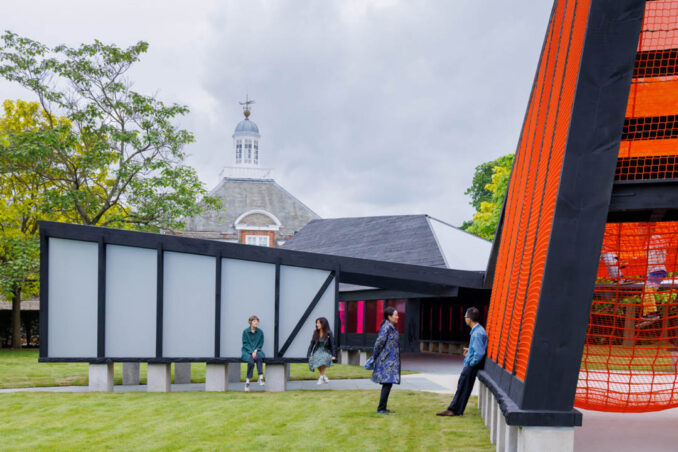
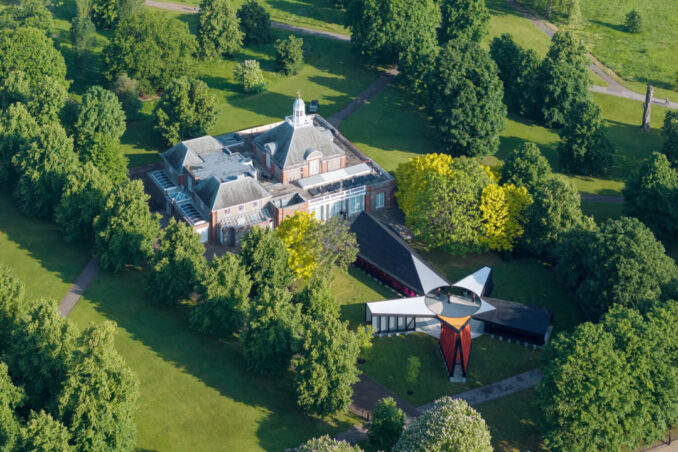
The 23rd Pavilion Archipelagic Void, designed by Seoul-based Korean architect Minsuk Cho and his firm Mass Studies will open on Friday 7 June 2024. Comprised of five ‘islands’, each structure of Archipelagic Void is unique in size, form, name and purpose, providing a dedicated platform for Serpentine’s live programme from June onwards.
Structure
Archipelagic Void is composed of a unique void in the centre surrounded by a series of smaller, adaptable structures located at its periphery. The layout references the madang, or an open courtyard found in traditional Korean houses.
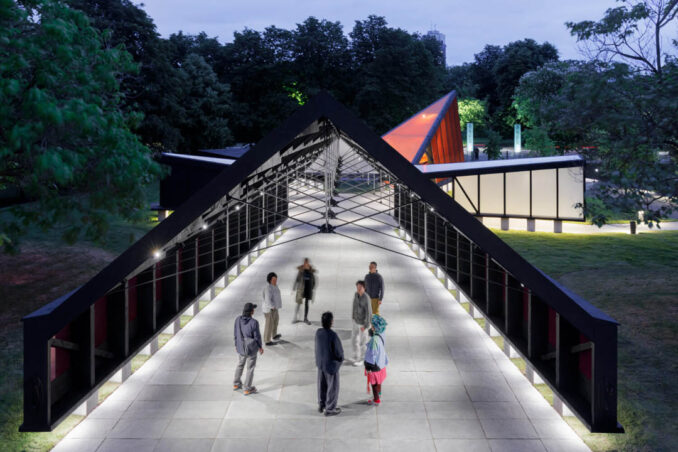
Around the void, each structure of this multifaceted Pavilion is envisioned as a “content machine” with a distinct name and purpose, including the Gallery, the Library, the Auditorium, the Tea House and the Play Tower. Assembled, the parts become ten spaces surrounding the void: creating five distinct covered spaces and five open, in-between areas that integrate with the surrounding park and Pavilion activities.
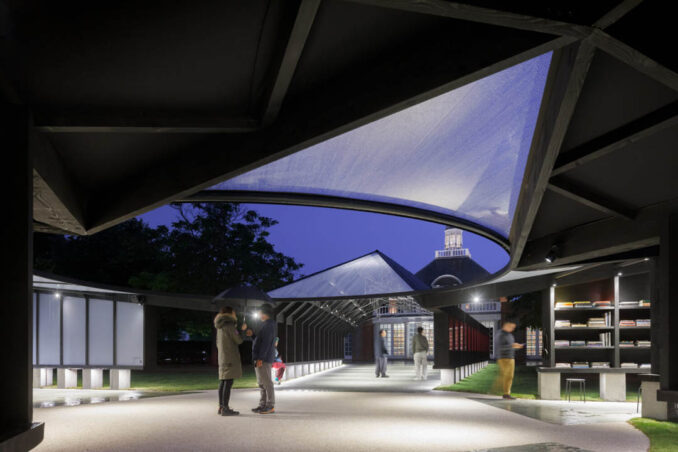
Programme
As the main entrance to the Pavilion, the Gallery plays host to a six-channelsound installation created by musician and composer Jang Young-Gyu, presenting The Willow is <버들은> in the Summer and Moonlight <월정명> in the Autumn. Taking inspiration from the surrounding environment of the Pavilion, Jang incorporates sounds from nature and human activities recorded in Kensington Gardens with traditional Korean vocal music and instruments. The distinctive tones and melodies trace the changing of seasons. The piece responds to the constantly transforming landscape of the Park.
Located to the north of the Pavilion is The Library of Unread Books by artist Heman Chong and archivist Renée Staal. Conceived as an artwork that functions as a ‘living’ reference library, each book has been donated by its previous owner to form a pool of common knowledge. Visitors are welcome to contribute and submit an unread book in their possession to the growing collection. By making these titles accessible, The Library of Unread Books functions as a collective gesture, addressing notions of access and distribution.
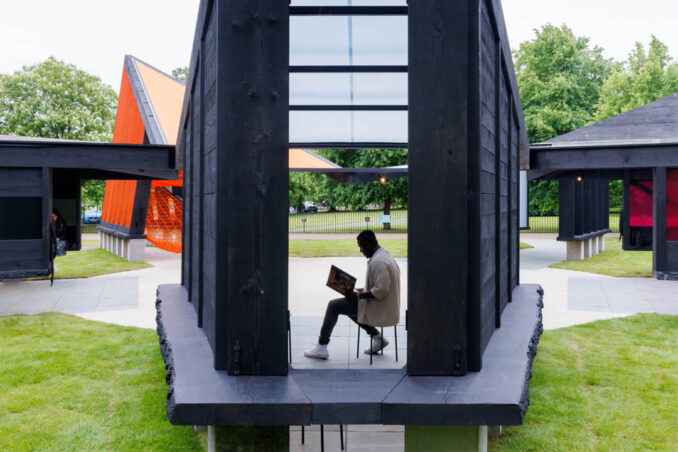
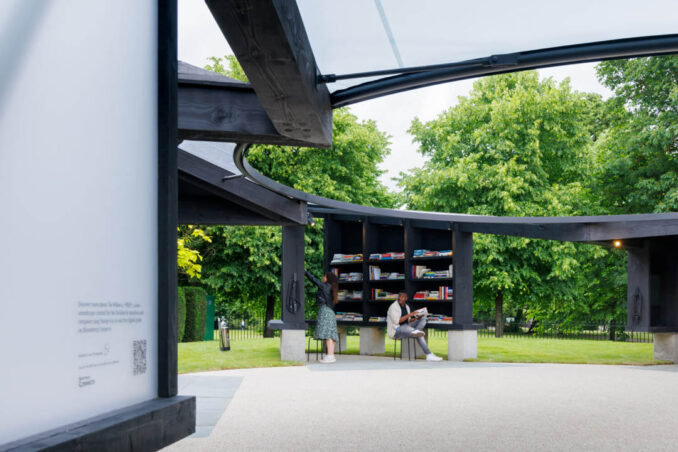
In a nod to the history of the Serpentine building, the Tea House will be located to the east of the Pavilion. Designed by James Grey West, the Serpentine South building opened in 1934 and originally functioned as a teahouse until the early 1960s, before reopening as an art gallery in 1970.
To the west, is the Auditorium, the largest structure of the five ‘islands’. With benches built into its inner walls, the space allows for public gatherings and will feature a programme of performances and talks.
Providing a space for outdoor play, the Pavilion also features the Play Tower, a pyramid structure fitted with a bright orange netscape allowing visitors to climb and interact.
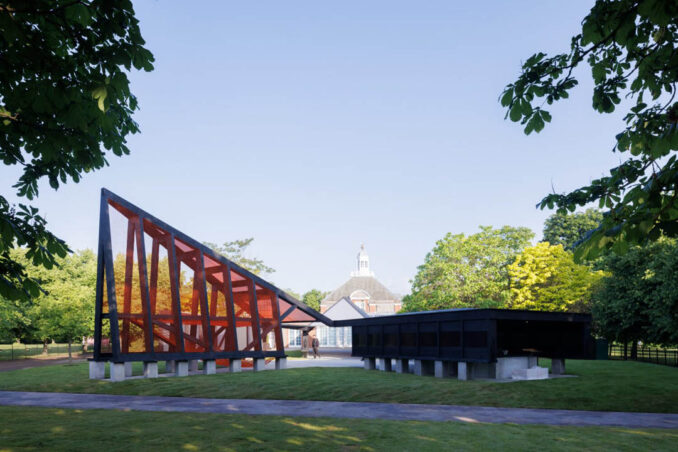
Archipelagic Void will be open to the public from 7 June – 27 October 2024 at Serpentine Galleries in London, UK.
